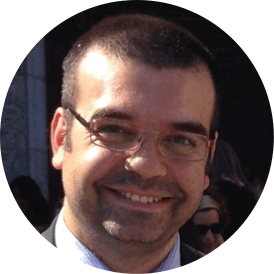The Flux of Information
- Michael Panao
- 2 de dez. de 2016
- 3 min de leitura

When Basarab Nicolescu developed his approach to transdisciplinarity, he defined Reality as what "resists" our experiments, representations, descriptions, images or mathematical formulations. For me, this resistance corresponds to the enquiry spirit in every researcher. It expresses the insatiable desire to know. We "resist" until we experience the freedom given by knowing something we previously didn't. And the more we go deeper into our research, the higher the resistance we experience in understanding any field of knowledge.
Reality has multiple levels because there's a set of systems invariable to the action of general laws. When there is a rupture in these laws and fundamental concepts, levels differentiate. We may know the chemical bondage in the DNA molecule, but the general laws of chemistry explaining it fail to explain why a particular set results in blues eyes. There's a rupture eventually understood by the general laws of biology, namely genetics.
However, I've added a word to Nicolescu's idea. I wouldn't say there are multiple levels of Reality, but multiple levels of understading Reality. This means we can always improve our knowledge of a certain level through a better interpretation of its part played in the fabric of Reality.
There is a tremendous richness in this view of Reality. Reducing all forms of knowledge to a single one has often led to close minded persons. Take some atheists, for example. Only science is able to explain things in this world, but I think they recognize the value of a poem. It's not a mere ensemble of letters making words, words making phrases, phrases expressing meaning. Chemistry, physics may explain HOW a poet writes, but only Literature, for example, can go deeper into the meaning of the words in a poem. Why should theology be any different?
Recognizing the value of having multiple levels of understanding in Reality, which is One, the problem in the aforementioned example of atheists is one of communication. How do levels communicate? The answer is a flux of information.
Today, the flux of Information is not new. In movies we hear "information is power". Even scientists like Paul Davies push information towards being the basic block of existence, expressing it in terms of the "ontological basement" of reality. Vlatko Vedral, professor of quantum information theory at the University of Oxford and the National University of Singapore says “Information, it seems to me, requires fewer assumptions about anything else we could postulate. As soon as you talk about matter and energy, you have to write down the laws that govern matter and energy.”
Without information it is not possible to understand anything in this universe. You may have energy, and things move forward, but toward what? That's why information gradually becomes the fundamental block for understanding Reality and all its levels of understanding.
The flux of information results in a greater interaction between levels of understanding reality. Although all levels coexist, they don't have the same degree of understanding. Some point to higher meanings than others, but there is a coherence in this flux. However, Nicolescu argues the resistance zone defined by all levels has a "higher" and "lower" limits. However, keeping them coherent implies an open unity beyond the resistance zone into a non-resistance zone where there are no levels of understanding reality. Nicolescu calls this zone _sacred_, which is rational, but not rationalized. We cannot deny or confirm the presence of the sacred in us, but we must always refer to the sacred while developing a coherent discourse about Reality. Otherwise, instead of keeping our mind prone to an open unity, it closes upon itself in the limits of our knowledge, hindering the full potential triggered by the desire to know.
So, what should we keep in mind in this journey?
There's a resistance zone including all levels of understanding reality.
There's a non-resistance zone, the sacred, complementary to the previous one.
The flux of information implies coherence.
And what's the outcome of that?
The transdisciplinary object.
"Quantumly" speaking, when we see the world in a different way, the world changes.







Comentários